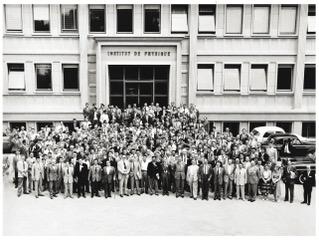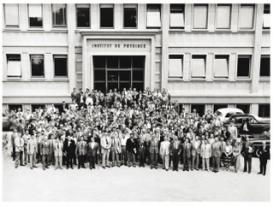For more than a century, the development of a successful theory of quantum gravity has remained one of physics’ most prized goals. But since theories of quantum gravity are testable only at extremely high energies, and since this makes empirical confirmation impossible in practice, it has sometimes been suggested that the search for a quantum theory of gravitation ought to disregard the very notion of empirical testing and follow instead the canons of a new “post-empirical” physics.

The 8th Rochester Conference on High Energy Physics, held in Geneva in 1958. Source: CERN Annual Report 1958.
This project examines the historical origins and epistemological status of this newly suggested approach to physics. It considers, in particular, the manner in which prior research in elementary particle physics may have paved the ground for the post-empirical turn advocated by some researchers in quantum gravity. For almost two decades, in fact, particle physics developed in spite of physicists’ repeated failures to relate their proposed theories to the empirical evidence available at the time. The project thus aims at utilizing this historical case-study, which focuses on the development of the Standard Model of Particle Physics during the 1950s and 1960s, in order to evaluate the soundness of post-empirical approaches to physics. To this end, technical, historical, and philosophical considerations will be taken into account, oriented to:
- Characterize the technical difficulties that prevented particle physicists from deriving explicit quantitative predictions from the fundamental equations of their theories,
- Investigate the different strategies that physicists devised in order to circumvent these difficulties, and the extent to which those relied on non-empirical criteria, and
- Evaluate the epistemological standing of contemporary forms of post-empirical physics in light of the above.

